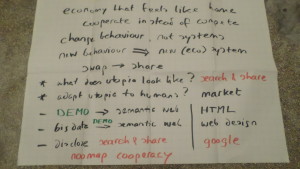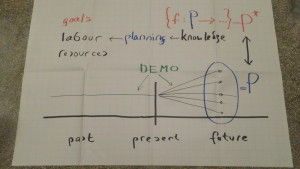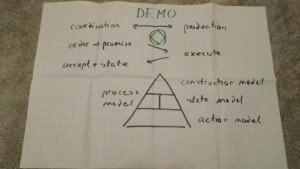i didn’t post this white paper yet but feel i should, so here it is: my submission to http://www.csw.inf.fu-berlin.de/vmbo2014/: vmbo-14
elevator pitch
here are some slides that explain the fundamental flaw in our economy
responsibility
here is an interesting example of responsibility:
take what you need ≠ take what you want
this video says it all
the perception of what you need depends on your level of consciousness
it takes guts to trust that you can take what you need, hence the name of this site: guts4roses
big data is the money of the future
search-and-share in 3 slides
search & share in bologna
here is a short impression of the bologna conference the city as a commons:
the impression is made by sarah marder, a social and environmental
weconomy in less than 250 words
the new economy is a share economy that will exist next to our current swap economy
i outlined it’s utopian model in this little booklet (less than 250 words) ruilen-delen-en (english) ruilen-delen-def (dutch)
reality will consist of myriads of projections of this utopia
each projection mitigates distrust
we used this travel guide on 7 dec 2017 in amsterdam
by the way: the central aforism ‘i do what i can and i take what i need´ was already coined by louis blanc in 1851 (louis blanc)
prezi
here is a prezi containning the main ideas:
https://prezi.com/embed/lcgw3dgzz2xm/
search & share in 10 minutes berlin
here are the slides that i used in berlin at the open tech summit 14 may 2015
and here is the talk itself:


